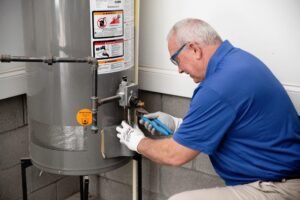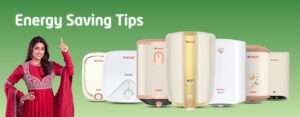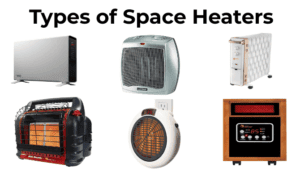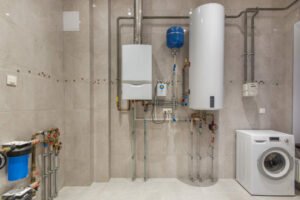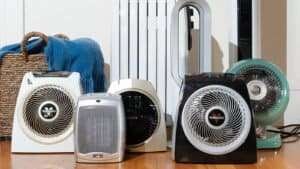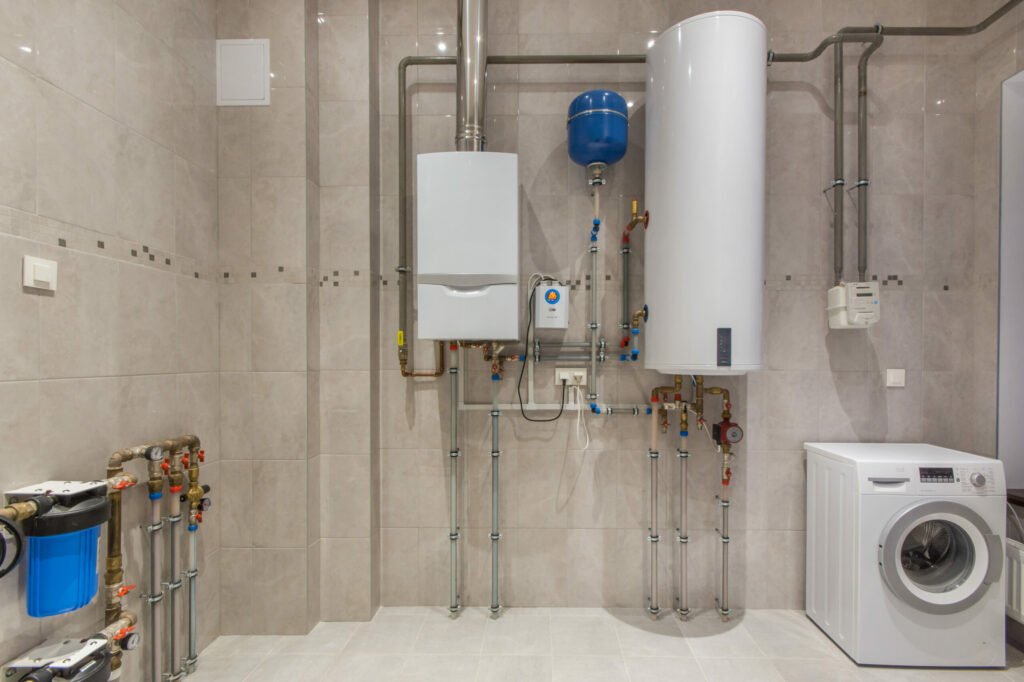
Selecting the right water heater for your home is a decision that impacts your daily comfort, energy bills, and overall efficiency. With numerous options available on the market, choosing the best water heater can be overwhelming. This comprehensive guide will help you navigate through the options, focusing on key factors and features to consider, so you can make an informed choice that suits your household’s needs.

1. Understanding the Different Types of Water Heaters
a. Tank-Type Water Heaters
Overview: Tank-type water heaters, also known as storage water heaters, are the traditional choice for many households. They store a large volume of hot water in a tank, which is then available for use on demand. These units can be powered by electricity or gas.
Pros:
- Consistent Hot Water Supply: Provides a large reserve of hot water, making it ideal for households with high or constant hot water usage.
- Lower Initial Cost: Generally less expensive upfront compared to tankless models.
- Simple Installation: Installation is straightforward, with fewer requirements compared to other types.
Cons:
- Energy Loss: Continuous energy is used to keep the water hot, leading to potential standby heat loss.
- Space Requirements: Requires significant space for the tank, which might not be ideal for smaller homes.
Overview: Tankless water heaters, or on-demand heaters, heat water only as it flows through the unit, eliminating the need for a storage tank. These models are available in both electric and gas options.
Pros:
- Energy Efficiency: Higher efficiency since water is heated only when needed, which reduces energy consumption and costs.
- Space-Saving: Compact design allows for installation in smaller spaces.
- Endless Hot Water: Provides a continuous supply of hot water, ideal for households with high or variable hot water needs.
Cons:
- Higher Initial Cost: Generally more expensive to purchase and install than tank-type heaters.
- Flow Rate Limitations: May have limitations on the number of outlets using hot water simultaneously.
c. Hybrid Water Heaters
Overview: Hybrid water heaters, or heat pump water heaters, combine the traditional tank with heat pump technology. They use ambient air to heat the water, making them highly energy-efficient.
Pros:
- Exceptional Efficiency: Offers some of the highest energy efficiency ratings available, significantly reducing energy costs.
- Reduced Operating Costs: Lower utility bills due to the energy-efficient heating process.
- Large Capacity: Suitable for larger households due to their higher capacity.
Cons:
- Higher Upfront Cost: More expensive initially compared to tank-type and standard tankless models.
- Installation Space: Requires more space for the heat pump components.
2. Key Factors to Consider When Buying a Water Heater
a. Capacity and Flow Rate
- Tank-Type: The capacity of tank-type heaters is measured in gallons. Choose a size based on your household’s hot water usage. Common sizes include 30, 40, and 50-gallon tanks.
- Tankless: Consider the flow rate, measured in gallons per minute (GPM). Ensure the unit can handle the peak hot water demand of your household. For example, a unit with a 6.5 GPM rating can typically meet the needs of a medium to large household.
- Hybrid: Choose a size that matches your household’s hot water demand. Hybrid models usually offer capacities similar to tank-type heaters, often ranging from 50 to 80 gallons.
b. Energy Efficiency
- Tank-Type: Look for models with a high Energy Factor (EF) rating, which measures the unit’s efficiency. Higher EF ratings indicate better energy efficiency and lower operating costs.
- Tankless: Check the Uniform Energy Factor (UEF) rating for tankless models. A higher UEF rating means better efficiency.
- Hybrid: Hybrid heaters typically have very high UEF ratings, reflecting their superior efficiency compared to other types.
c. Installation and Space Requirements
- Tank-Type: Requires a dedicated space for the tank. Ensure you have sufficient room in your home for installation.
- Tankless: Compact and can be installed in smaller spaces. However, installation may require additional modifications to your home’s electrical or gas systems.
- Hybrid: Needs adequate space for the heat pump components. Check the dimensions and installation requirements before purchasing.
d. Cost
- Tank-Type: Generally has a lower initial cost but may have higher long-term operating costs due to energy consumption.
- Tankless: Higher initial cost, but potential for lower energy bills and a longer lifespan.
- Hybrid: Higher upfront cost, but significant savings on utility bills due to high energy efficiency.
3. Top Models to Consider for 2024
a. Rheem Performance Platinum 50-Gallon Electric Water Heater
- Type: Tank-Type
- Capacity: 50 gallons
- Energy Efficiency: 0.92 EF
- Features: Provides a large hot water reserve, high energy efficiency, and a 12-year warranty. Ideal for medium to large households.
b. Ecosmart ECO 27 Tankless Electric Water Heater
- Type: Tankless
- Flow Rate: Up to 6.5 GPM
- Energy Efficiency: 0.99 UEF
- Features: Compact design, high efficiency, and endless hot water supply. Suitable for medium to large households.
c. Rheem Performance Platinum Hybrid Electric Water Heater
- Type: Hybrid
- Capacity: 50 gallons
- Energy Efficiency: 3.55 UEF
- Features: Offers superior energy efficiency and reduced operating costs. Ideal for larger households with high hot water needs.
4. Maintenance and Longevity
a. Tank-Type Models: Regular maintenance includes checking the anode rod and flushing the tank to prevent sediment buildup. These units typically last 10-15 years.
b. Tankless Models: Requires periodic descaling to prevent mineral buildup. With proper maintenance, tankless heaters can last 15-20 years.
c. Hybrid Models: Maintain by cleaning the air filter and checking the heat pump components. These units usually have a lifespan of 10-15 years.
5. Conclusion
Choosing the best water heater for your home involves evaluating your hot water needs, energy efficiency, installation space, and budget. Tank-type heaters are reliable and cost-effective for high hot water demand. Tankless heaters offer energy savings and space efficiency, while hybrid models provide the highest efficiency and cost savings in the long run.
By considering these factors and exploring top models for 2024, you can find the ideal water heater that meets your household’s requirements. Ensuring a balance between initial cost, energy efficiency, and long-term savings will help you make a choice that provides reliable performance and comfort for years to come.
